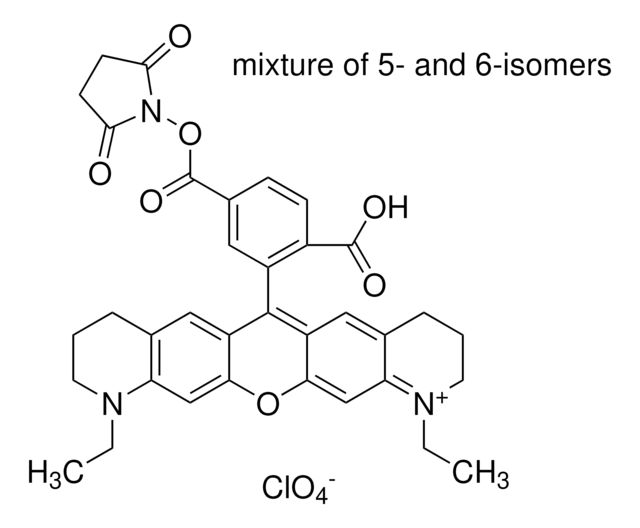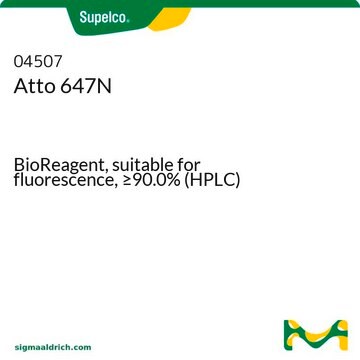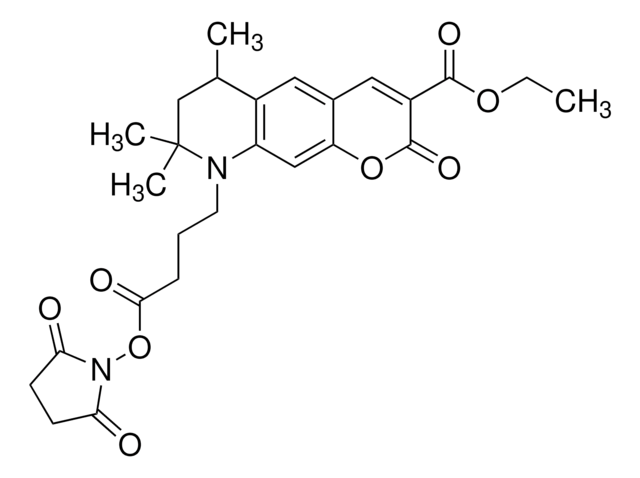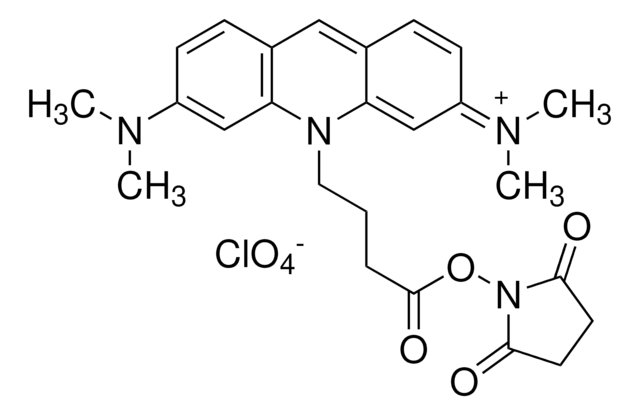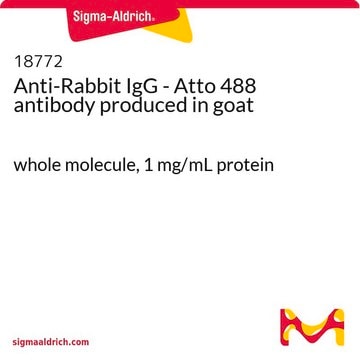41051
Atto 488
BioReagent, suitable for fluorescence, ≥90% (HPLC)
About This Item
Recommended Products
product line
BioReagent
Quality Level
Assay
≥90% (HPLC)
manufacturer/tradename
ATTO-TEC GmbH
λ
in methanol: water (1:1) (with 0.1% perchloric acid)
UV absorption
λ: 501-507 nm Amax
suitability
suitable for fluorescence
storage temp.
−20°C
General description
Application
Legal Information
Storage Class Code
11 - Combustible Solids
WGK
WGK 3
Flash Point(F)
Not applicable
Flash Point(C)
Not applicable
Personal Protective Equipment
Certificates of Analysis (COA)
Search for Certificates of Analysis (COA) by entering the products Lot/Batch Number. Lot and Batch Numbers can be found on a product’s label following the words ‘Lot’ or ‘Batch’.
Already Own This Product?
Find documentation for the products that you have recently purchased in the Document Library.
Customers Also Viewed
Articles
Fluorescence lifetime measurement is advantageous over intensity-based measurements. Applications include fluorescence lifetime assays, sensing and FLI.
Our team of scientists has experience in all areas of research including Life Science, Material Science, Chemical Synthesis, Chromatography, Analytical and many others.
Contact Technical Service

